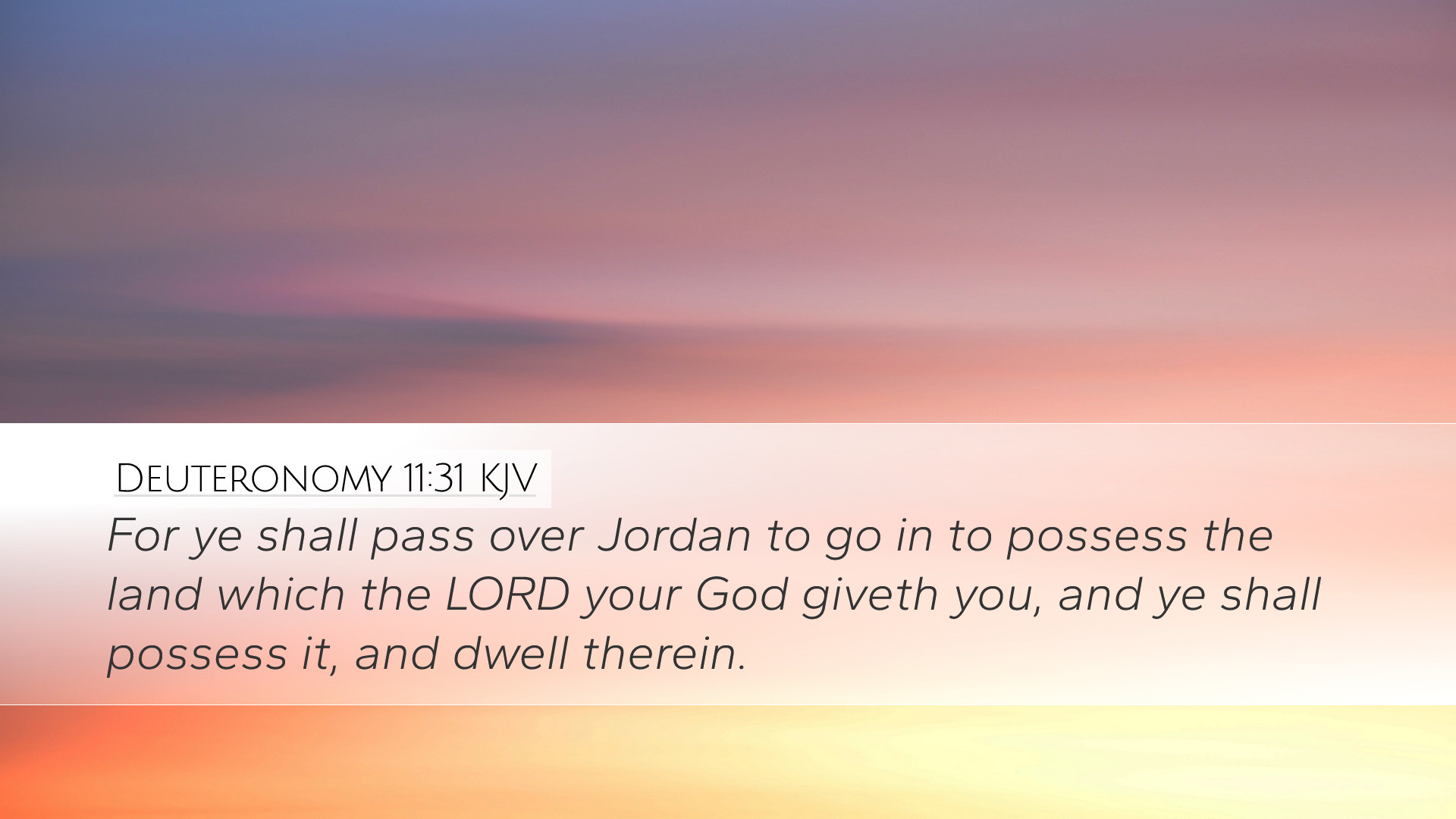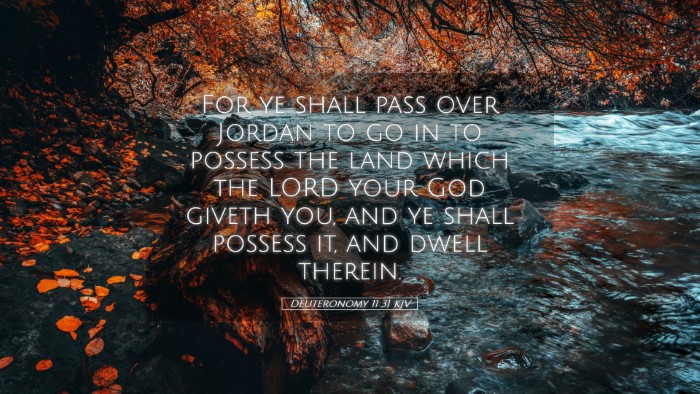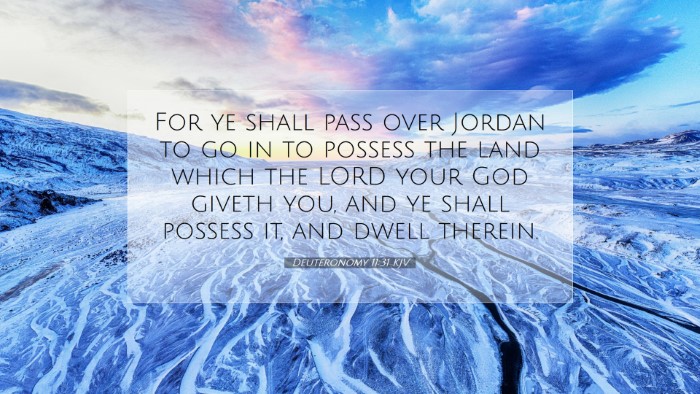Commentary on Deuteronomy 11:31
Verse Text: "For you are about to cross over the Jordan to go in to possess the land which the Lord your God is giving you, and you shall possess it and dwell in it."
Introduction
This verse lies at the core of a significant transition for the Israelites as they prepare to enter the Promised Land. It encapsulates themes of divine promise, obedience, and the covenant relationship between God and His people.
Matthew Henry's Commentary Insights
Matthew Henry emphasizes the importance of the land as a gift from God, indicative of His faithfulness to His promises. He notes:
- Transition and Preparation: The Israelites are on the verge of a pivotal moment, transitioning from wilderness to settlement, indicating a new phase in their covenant relationship with God.
- Divine Assurance: Henry points out that crossing the Jordan signifies not only physical movement but also the fulfillment of God's promises. Their ability to possess the land depends on their obedience to God.
- Land as a Blessing: The land is described as an inheritance from God, underscoring its sacredness and the necessity to honor God in their new homeland.
Albert Barnes' Commentary Insights
Albert Barnes provides a detailed exegesis on the practical implications of crossing the Jordan River:
- Symbolism of the Jordan: The Jordan River symbolizes a significant spiritual and physical commitment. It serves as a barrier to be crossed to enter into a life dictated by faith and obedience.
- Possession and Diligence: Barnes highlights that possessing the land requires diligence in upholding God's law. The future success of Israel hinges on their adherence to divine guidance.
- Implications for Leadership: Leaders are reminded of their responsibility in guiding the people through the challenges of this transition, imparting the importance of obedience to God's statutes.
Adam Clarke's Commentary Insights
Adam Clarke elaborates on the rich theological implications of this journey:
- Historical Context: Clarke notes the historical context of Israel’s journey, tracing their trials and God's continual provision and preparation for this moment of entering the land.
- Promise of God’s Presence: The promise that God is giving the land reiterates not only His faithfulness but also His constant presence with His people, a theme prevalent throughout Bible narratives.
- Call to Faith: Clarke’s commentary emphasizes a call to faith, encouraging the Israelites—and by extension, modern readers—to trust in God's promises even when obstacles appear insurmountable.
Theological Themes
In analyzing Deuteronomy 11:31 through these commentaries, several theological themes emerge:
- God's Promises: The assurance that God honors His covenants stands central, highlighting the depth of His commitment to Israel.
- Obedience and Blessing: The connection between obedience to divine command and the resulting blessings serves as a timeless principle throughout Scripture.
- Transition and Transformation: This moment marks a crucial transition not only geographically but also spiritually, calling for a transformative period where reliance on God is paramount.
Application for Pastors, Students, and Theologians
The implications of this Scripture are profound for contemporary believers:
- Encouragement in Leadership: Pastors are encouraged to remind their congregations of the importance of keeping faith in God's promises during challenging transitions.
- Educational Focus: Students of the Bible are urged to study the historical and theological foundations laid in the Old Testament and their relevance to New Testament faith.
- Theological Reflection: Theologians are called to explore the broader implications of God's promises, covenantal faithfulness, and the requirement of obedience to God's law.
Conclusion
Deuteronomy 11:31 is not merely a historical note; it signifies the dynamic relationship between God and His people, marked by promise, obedience, and transformative faith. The insights from respected biblical commentaries provide rich resources for understanding the depth of this verse, urging a continued exploration of God’s unchanging nature as a promise-keeping deity.


